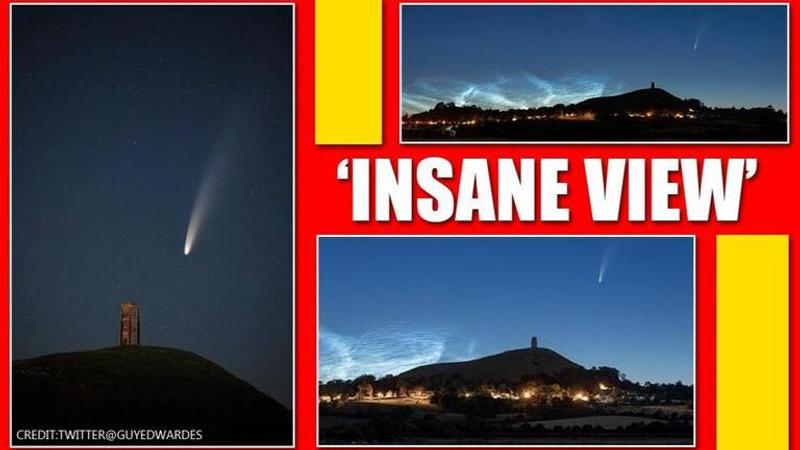Published 15:21 IST, July 11th 2020
Netizens share stunning visuals of Comet NEOWISE gracing the night sky
As Comet NEOWISE begins to make its way across the globe, netizens took to Twitter to share stunning images of the comet, fascinated by its visuals

As Comet NEOWISE begins to make its way across the globe, netizens took to Twitter to share stunning images of the comet, fascinated by its visuals that can be easily seen with the naked eye. While most comets can only be seen using large telescopes, Comet NEOWISE raised the expectations of people across the globe after it emerged as a glowing object for skywatchers, easily visible with the naked eye. The third comet to be discovered this year, NEOWISE has been a delight for the earthlings especially after hopes from the two previous comets, ATLAS and SWAN, fizzled out.
Netizens share images
How to see Comet Neowise in India?
Comet NEOWISE will be visible its closest approach to Earth between July 22 and July 23, when it streaks just over 10 crore kilometres from the Earth. This is when people in India and other parts of the Northern hemisphere will be able to see Comet NEOWISE right after sunset before it disappears for 6,800 years. Luckily, you will able to view the Comet with just your naked eyes if you don’t have a pair of binoculars. As it starts moving through the outer trenches of the solar system in August, the Comet NEOWISE will begin to fade out.
Comet Neowise
The NEOWISE comet has been an intriguing site for several wanderers of the sky. It was first discovered on March 27, 2020, using a NEOWISE (Near-Earth Object Wide-field Infrared Survey Explorer) space telescope. After its discovery, it was listed as C/2020 F3 which was located 312 million kilometres (194 million miles) from the sun. At a very faint magnitude of +17, it is considered to be 25,000 times fainter than the faintest star that can be glimpsed with the naked eye.
Updated 15:21 IST, July 11th 2020



